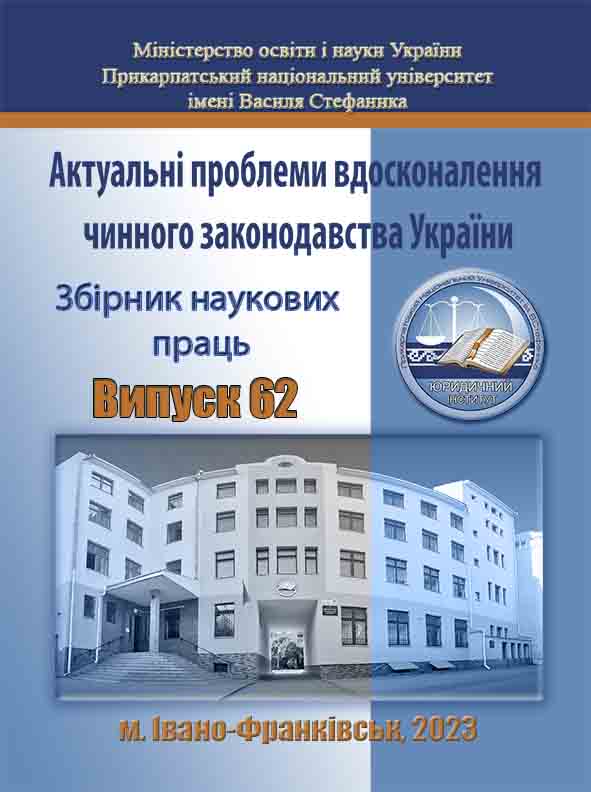Some Aspects of the Efficiency of the Law of Ukraine 2662-VIII «On the Specification of Church Names with Governing Centers Located in an Aggressor Country» in Wartime Conditions
DOI:
https://doi.org/10.15330/apiclu.62.1.1-1.13Keywords:
religion, freedom of religion, freedom of conscience, principles of equality, mechanisms of influence, religious organizations, religious associations, church, teleological analysis, law efficiency, state religion, aggressor country, canonical connection, proprietary lawAbstract
This article investigates the issue of the efficiency of the Law of Ukraine 2662-VIII «On the Specification of Church Names with Governing Centers Located in an Aggressor Country» in wartime conditions.
It emphasizes the significant role played by laws concerning freedom of religion as a subjective legal right and religious organizations as instruments and systems for satisfying religious needs following Ukraine’s declaration of independence. Furthermore, it analyzes the main laws, subsidiary acts, and decrees that ensure the right to freedom of religion in Ukraine.
An analysis is conducted on the effectiveness of Law No. 2662-VIII «On Amending Article 12 of the Law of Ukraine ‘On Freedom of Conscience and Religious Organizations’» enacted on December 20, 2018, as well as the mechanisms for implementing this law in practice through executive government bodies. The risks of interpreting this law in the context of human rights violations and the potential for creating informational grounds for propagating «suppression of faith» within the Russian media space are noted.
It is emphasized that Law No. 2662-VIII solely mandates the correction of the name of a religious organization and does not alter the philosophy of said organization regarding national security and state-building.
The article clarifies the concept of the efficiency of legislative innovations at the time of their adoption, indicating that such efficiency is determined dynamically through socio-historical positive changes.
Furthermore, it underscores the necessity of conducting teleological analysis, analysis of social needs, representativeness, and other factors to define the comprehensive goals set by laws or acts before their implementation in the legal framework of the country.
The need is identified to develop a legislative proposal for the re-registration of all religious organizations, without exception, within a specified timeframe. Additionally, there is a call to expand the authority of the executive branch in the establishment of religious associations and to strengthen the oversight conducted by law enforcement agencies over their activities.


